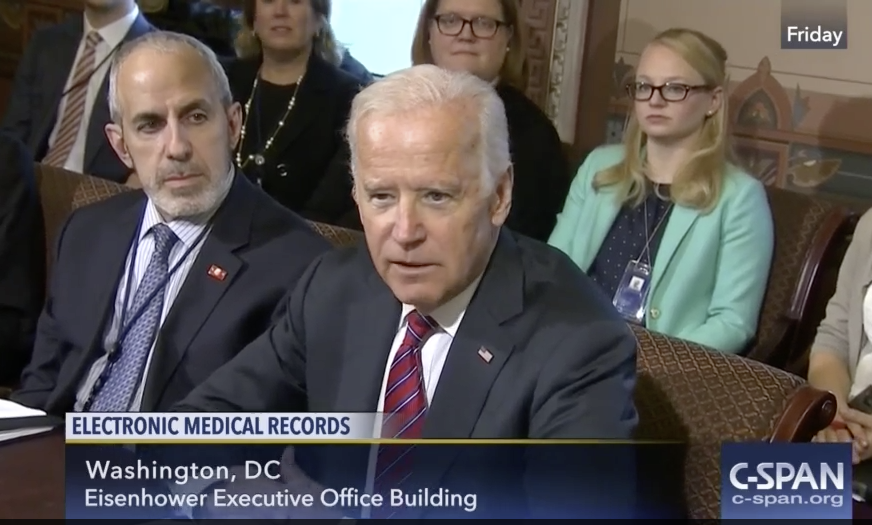 If you've ever had a hard time trying to decide what's best for your health (e.g., Sorry, There's Nothing Magical About Breakfast), perhaps you can take comfort in the fact that physicians often aren't so sure either. Or perhaps not. A new study in Annals of Surgery, and nicely reported on by Julia Belluz in Vox, focused on surgical uncertainty. The researchers sent four detailed clinical vignettes to a national sample of surgeons, seeking to get their assessment on the risks/benefits of operative and non-operative treatment, as well as their recommendations. You'd like to think there was good consensus on what to do, but that was not the case...
If you've ever had a hard time trying to decide what's best for your health (e.g., Sorry, There's Nothing Magical About Breakfast), perhaps you can take comfort in the fact that physicians often aren't so sure either. Or perhaps not. A new study in Annals of Surgery, and nicely reported on by Julia Belluz in Vox, focused on surgical uncertainty. The researchers sent four detailed clinical vignettes to a national sample of surgeons, seeking to get their assessment on the risks/benefits of operative and non-operative treatment, as well as their recommendations. You'd like to think there was good consensus on what to do, but that was not the case...
Vox
See the following -
Is The 1.5+ Trillion Dollar HITECH Act a Failure?
 Hopefully, the public statements made by President Obama and Vice President Biden will lead to a public debate over the monumental problems that the HITECH Act and proprietary EHR vendors have caused the American people. While the press continues to report the figure of $35 billion as the cost of implementing EHRs, that figure does not tell the entire story. Perhaps the next step is to provide accountability and transparency. That would start with firm numbers regarding the real costs of EHR implementations forced on an unprepared healthcare system by the HITECH Act.
Hopefully, the public statements made by President Obama and Vice President Biden will lead to a public debate over the monumental problems that the HITECH Act and proprietary EHR vendors have caused the American people. While the press continues to report the figure of $35 billion as the cost of implementing EHRs, that figure does not tell the entire story. Perhaps the next step is to provide accountability and transparency. That would start with firm numbers regarding the real costs of EHR implementations forced on an unprepared healthcare system by the HITECH Act.
- The Future Is Open
- Login to post comments
Is the US Healthcare System Suffering from the Dunning-Kruger Effect?
 Psychologist David Dunning, originator of the eponymous Dunning-Kruger effect, recently gave an interview to Vox's Brian Resnick. For those of you not familiar with the Dunning-Kruger effect, it refers to the cognitive bias that leads people to overestimate their knowledge or expertise. More importantly, those with low knowledge/ability are most likely to overestimate it. Does this make anyone else think of the U.S. healthcare system? Professor Dunning proposed the effect in 1999, in a paper in Journal of Personality and Social Psychology, along with then-graduate student Justin Kruger. Since then, it has become widely known and broadly applied (not always accurately, as Dr. Dunning explains in the interview).
Psychologist David Dunning, originator of the eponymous Dunning-Kruger effect, recently gave an interview to Vox's Brian Resnick. For those of you not familiar with the Dunning-Kruger effect, it refers to the cognitive bias that leads people to overestimate their knowledge or expertise. More importantly, those with low knowledge/ability are most likely to overestimate it. Does this make anyone else think of the U.S. healthcare system? Professor Dunning proposed the effect in 1999, in a paper in Journal of Personality and Social Psychology, along with then-graduate student Justin Kruger. Since then, it has become widely known and broadly applied (not always accurately, as Dr. Dunning explains in the interview).
- Login to post comments
Mystery Consent Forms and the Scourge of Surprise Medical Bills
 We are, it appears, shocked -- shocked! -- that there are "surprise" bills in healthcare. That is, bills from out-of-network healthcare professionals, even when patients thought they were going to in-network professionals/facilities. The problem is bad enough that even our deeply divided Congress has bipartisan agreement that it should act (although whether it will, of course, remains to be seen). Of course, surprise billing shouldn't come as a surprise to anyone who knows much about healthcare; it is more of a symptom of problems with our healthcare system than a problem itself. Kaiser Health News/NPR deserve much credit for getting more attention for the issue, with their Bill of the Month crowdsourced investigation.
We are, it appears, shocked -- shocked! -- that there are "surprise" bills in healthcare. That is, bills from out-of-network healthcare professionals, even when patients thought they were going to in-network professionals/facilities. The problem is bad enough that even our deeply divided Congress has bipartisan agreement that it should act (although whether it will, of course, remains to be seen). Of course, surprise billing shouldn't come as a surprise to anyone who knows much about healthcare; it is more of a symptom of problems with our healthcare system than a problem itself. Kaiser Health News/NPR deserve much credit for getting more attention for the issue, with their Bill of the Month crowdsourced investigation.
- Login to post comments
Obama and Biden Blast EHR Vendors for Data Blocking
 As they are winding their terms in office, President Barack Obama and Vice President Joe Biden dropped a stink bomb on the health IT industry. Speaking at different events on Friday, January 9th, the President and Vice President both criticized proprietary electronic health record (EHR) vendors as the primary obstacle to the success of their administration’s health care strategy. This is the highest level acknowledgment so far of the serious impact that “lock-in” EHR software vendors are having on America’s medical infrastructure and the ability of physicians to provide medical care.
As they are winding their terms in office, President Barack Obama and Vice President Joe Biden dropped a stink bomb on the health IT industry. Speaking at different events on Friday, January 9th, the President and Vice President both criticized proprietary electronic health record (EHR) vendors as the primary obstacle to the success of their administration’s health care strategy. This is the highest level acknowledgment so far of the serious impact that “lock-in” EHR software vendors are having on America’s medical infrastructure and the ability of physicians to provide medical care.
Practicing in an Age of Uncertainty
- Login to post comments
Practicing in an Age of Uncertainty
 If you've ever had a hard time trying to decide what's best for your health (e.g., Sorry, There's Nothing Magical About Breakfast), perhaps you can take comfort in the fact that physicians often aren't so sure either. Or perhaps not. A new study in Annals of Surgery, and nicely reported on by Julia Belluz in Vox, focused on surgical uncertainty. The researchers sent four detailed clinical vignettes to a national sample of surgeons, seeking to get their assessment on the risks/benefits of operative and non-operative treatment, as well as their recommendations. You'd like to think there was good consensus on what to do, but that was not the case...
If you've ever had a hard time trying to decide what's best for your health (e.g., Sorry, There's Nothing Magical About Breakfast), perhaps you can take comfort in the fact that physicians often aren't so sure either. Or perhaps not. A new study in Annals of Surgery, and nicely reported on by Julia Belluz in Vox, focused on surgical uncertainty. The researchers sent four detailed clinical vignettes to a national sample of surgeons, seeking to get their assessment on the risks/benefits of operative and non-operative treatment, as well as their recommendations. You'd like to think there was good consensus on what to do, but that was not the case...
- Login to post comments
When Artificial Intelligence Robots Start Replacing Physicians, Will We Notice -- Or Care?
 There's an interesting verbal battle going on between two prominent tech venture capitalists over the future of AI in health care. In an interview in Vox, Marc Andreessen asserted that Vinod Khosla "has written all these stories about how doctors are going to go away...And I think he is completely wrong." Mr. Khosla was quick to respond via Twitter: "Maybe @pmarca [Mr. Andreessen] should read what I think before assuming what I said about doctors going away." He included a link to his detailed "speculations and musings" on the topic. It turns out that Mr. Khosla believes that AI will take away 80% of physicians' work, but not necessarily 80% of their jobs, leaving them more time to focus on the "human aspects of medical practice such as empathy and ethical choices"...
There's an interesting verbal battle going on between two prominent tech venture capitalists over the future of AI in health care. In an interview in Vox, Marc Andreessen asserted that Vinod Khosla "has written all these stories about how doctors are going to go away...And I think he is completely wrong." Mr. Khosla was quick to respond via Twitter: "Maybe @pmarca [Mr. Andreessen] should read what I think before assuming what I said about doctors going away." He included a link to his detailed "speculations and musings" on the topic. It turns out that Mr. Khosla believes that AI will take away 80% of physicians' work, but not necessarily 80% of their jobs, leaving them more time to focus on the "human aspects of medical practice such as empathy and ethical choices"...